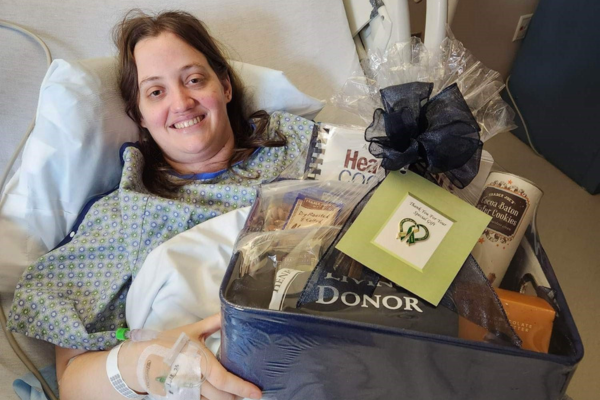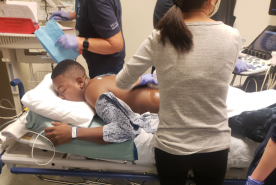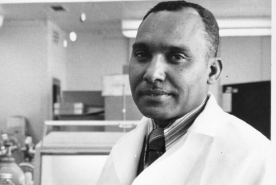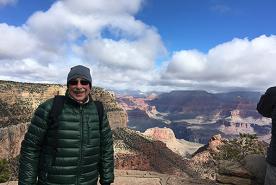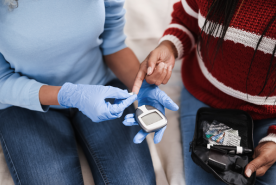August 10, 2023
On a day like any other, Cheyenne Severence's father, Robert Barns, began having trouble with his vision. He discovered that one of his retinas had detached from damage caused by diabetes, and he would need surgery to fix it. That's when his eye doctor recommended he get a check-up–if diabetes had damaged the blood vessels in his eyes this badly, he likely had damage elsewhere, like his kidneys. What he learned during the check-up would change his life forever and prompt Cheyenne to begin her own kidney journey.
A surprising diagnosis
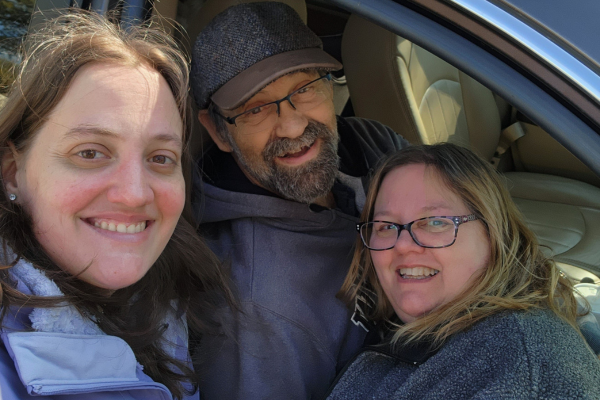
Cheyenne's father followed the advice and scheduled a check-up. He learned he had stage 3b kidney disease and high blood pressure during that appointment. He would likely progress to kidney failure within a year. His family was stunned.
Learn more about kidney disease risk factors.
"It was a shock at first. We didn't realize kidney failure could be caused by diabetes but once we learned that, we weren't as surprised," Cheyenne said. "My dad was diagnosed with diabetes not long after one of my sisters died in a car accident. This caused him to be really resistant to treatment for the first ten years of his diagnosis."
After this revelation, Cheyenne's father's health began to decline quickly.
"He was declining fast and we didn't know whether he would survive or if he was a candidate for transplant," Cheyenne said. "There were many unknowns and it took a long time to get on peritoneal dialysis. By the time he started dialysis, he had almost died. He couldn't function at all."
While Cheyenne's family pushed Robert to get a transplant, he was hesitant despite how sick he was.
"My dad didn't want a transplant because he didn't understand the transplant process. He was hard set against it because he didn't want to take a kidney away from someone younger or someone who had young kids to raise. He had lived his life and raised his kids and didn't want to take away someone else's chance to do the same," said Cheyenne. "Once he got more education and realized he would get an equivalent kidney, he was a bit more open to it, but still didn't want to take a kidney from my siblings or me."
Despite his hesitation, the family convinced Robert to undergo the transplant waitlist evaluation, which he passed.
Are you at risk of kidney disease? Take this one-minute quiz to find out. It may just save your life.
Deciding to donate
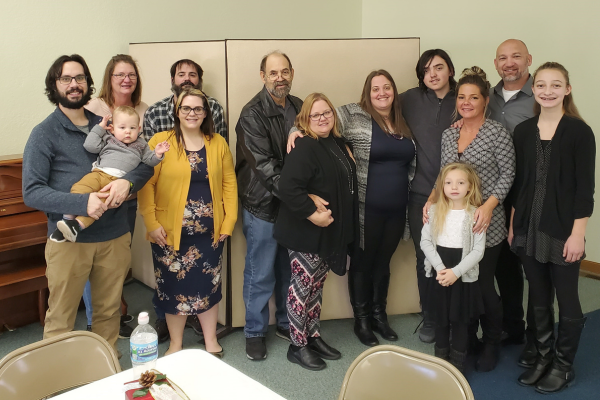
With Robert waitlisted, Cheyenne and her sister started the living donor evaluation process. They both wanted to give back to their father, who had sacrificed a lot to provide them with a better childhood than he had.
"As soon as I heard my dad was in kidney failure, I knew I would do anything to save him because he worked hard for us. When I was young, my sister got leukemia. He worked the third shift, drove 20 minutes home to get my mom and sister, and then drove over two hours to the cancer hospital. He'd sleep in the van while she got her treatment, then drop them off at home before going back to work," Cheyenne said. "That was my dad. He did everything to give us the best possible life and I wanted the opportunity to give back. I wanted him to enjoy the fruits of his labor during retirement."
As Cheyenne progressed through the evaluation, her father became more willing to receive a transplant.
"He realized the intensity of dialysis and how much time it took. They couldn't travel because it was such a production to get and travel with the supplies," said Cheyenne. "He put so much work into the treatment but still felt awful. He didn't want to live the rest of his life like that."
Luckily, Cheyenne was a match, though the process took longer than she anticipated.
"It was frustrating but I realize that it is a process for a reason and they work hard to progress families. While it's a crisis to us, the evaluation process is designed to make sure the donor is healthy and won't experience adverse effects during or after the transplant. They also want to make sure the recipient is stable enough for surgery," Cheyenne said. "Even though it only took six months, it felt like a lifetime. After I was approved, I was so excited and wanted to get it done as quickly as possible."
Six weeks later, Cheyenne and her father underwent one last round of testing before surgery.
Want to learn more about living donation? Sign up for “Becoming a Living Donor”, a free online self-paced course that teaches you everything you need to know.
Donating a kidney
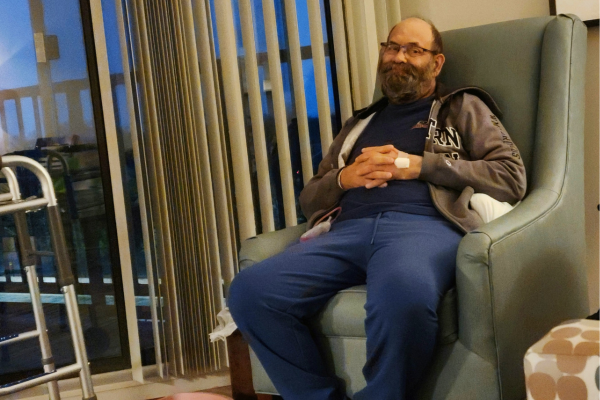
The surgery was a success! Cheyenne and her father had no complications and went home within two weeks.
"Recovery was not easy. I was in a lot of pain because I had robotic-assisted surgery. My transplant team warned me in advance that it may be more painful because the robot rests against the body and doesn't have the ability to adjust pressure. The pain lasted about four days and was intense at times. The most difficult part was getting in and out of bed," Cheyenne said. "I took the pain meds the hospital offered and I think it's important for people to know it's okay to do that—you don't have to be a martyr. The medicine helped along with deep breathing. My doctors and nurses were fantastic and helped me through it."
Pain after the transplant surgery is to be expected and usually goes away within a few weeks. For Cheyenne, the pain was worth it.
"My dad came out of surgery and was able to walk to my room to see me within hours. He already felt so much better. Even though there was pain, seeing him already coming back to life was incredible and helped me push through the difficult moments," Cheyenne said. "After the surgery, we stayed in guest housing next to the hospital. It was great because Dad and I got to be together, my sisters came and stayed with my mom, and we all recovered as a family."
It's only been a few months since the surgery but Cheyenne and her father are back to normal and enjoying life.
"I have no negative outcomes. I'm totally good! I've gotten back into exercising and can do everything that I want to. We had a pool party recently and my dad went down the waterslide twice. We snapped a picture and the joy in his face fills me with so much pride, knowing I got to play a role in him taking his life back and getting to enjoy his elderly years," said Cheyenne. "For anyone considering becoming a living donor, I recommend you go for it. The fear of the unknown is real but there are experts alongside you the entire way to answer questions and support you in your journey. Giving that gift of life is the most incredible thing I've ever done."
Ask Congress to pass the Living Donor Protection Act to ensure living donors can give the gift of life without fear of insurance discrimination post-transplant.
